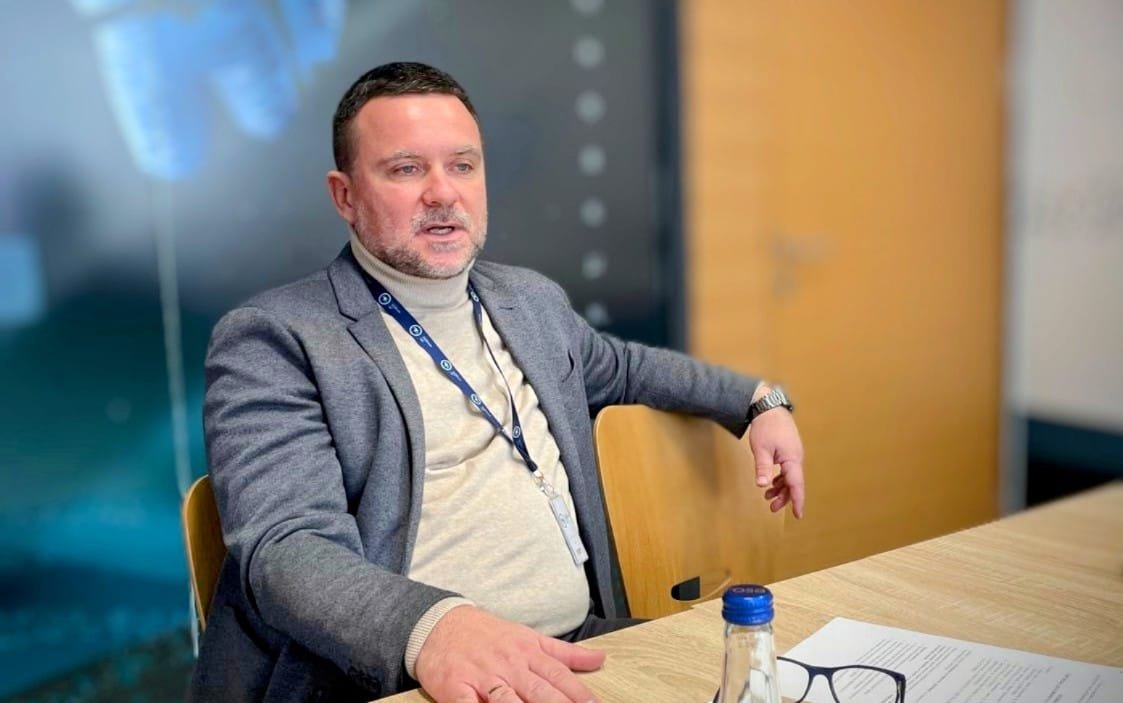Expert Discussion on Energy Efficiency in the Western Balkans
An expert panel on Energy Efficiency in the Western Balkans featured keynotes by Dr. Leonard Burtscher (Umweltinstitut München, Germany), Bojan Gajić (Program Director, Platform for Energy Transition, Serbia), Dragan Blažev (Senior Energy Consultant, North Macedonia), and Driton Hetemi (Managing Director, Kosovo Energy Efficiency Fund) was held on Tuesday, 12th November. This virtual panel was held as part of the Western Balkans Decarbonisation Project, the event brought together experts from Kosovo, North Macedonia, Serbia, and Germany to discuss the vital role of energy efficiency in the region’s decarbonization journey.
Keynote by Bojan Gajić: Insights into Regional Energy Management
A keynote speech was delivered by Bojan Gajić, PET’s Program Director. Drawing on over 15 years of experience in energy development and efficiency, Mr. Gajić shared Serbia’s progress and the role of municipal-level leadership in advancing energy goals. Known for his initiatives in Niš, Mr. Gajić emphasized the importance of cross-border cooperation in energy management, advocating for aligned policies and regional benchmarks to drive impactful energy transitions across the Western Balkans.
“Serbia’s regulatory framework for energy efficiency comprises the Energy Efficiency Law, the Law on Planning and Construction, and the Law on Housing and Building Maintenance, along with strategic plans such as the Energy Development Strategy until 2025 (with projections to 2030), the INCEP - Integrated National Energy and Climate Plan, the Long-Term Renovation Strategy for national building stock by 2050 and Sofia Declaration of the Green Agenda for the Western Balkans. However, the effectiveness of these initiatives faces challenges, including outdated policies, lack of institutional support, and gaps in secondary legislation and workforce capacity. Barriers to progress include the absence of systematic approaches, low energy pricing, incomplete energy performance data, and unresolved property issues.
Key milestones achieved include appointing energy managers in 73 municipalities and establishing an energy efficiency fee.
Funding for energy projects is available through initiatives such as the SURCE program, IPA III, and various public-private investments, with substantial loans allocated to projects targeting district heating and central government building renovations. Noteworthy projects include district heating system upgrades in Niš and Šabac, public ESCO projects, and municipal programs for building renovation. Regionally, Serbia collaborates with Western Balkan countries on cross-border projects and shares best practices through regional programs and international support from donors like UNDP and GIZ” - Bojan said.
Additional Key Insights from Leading Experts
In addition to Mr. Gajić, the session featured notable presentations by:
Dr. Leonard Burtscher, Umweltinstitut München, Germany, who shared insights into Germany’s recent energy efficiency law and the EU’s Energy Efficiency Directive.
Dragan Blažev, Senior Energy Consultant from North Macedonia, who discussed financing models and project strategies within the Western Balkan Green Economy Financing Facility.
Driton Hetemi, Managing Director of the Kosovo Energy Efficiency Fund (KEEF), who presented Kosovo’s advancements in energy audits and efficiency standards for public and residential buildings.
Moving Forward: Collaboration for Regional Impact
Moderated by Viktoria Voglsinger-Palm, Deputy Director at Southeast Europe Association, the discussion underscored the potential of regional cooperation in driving energy efficiency initiatives. Participants engaged in a robust exchange on leveraging national policies and financing mechanisms to create sustainable energy solutions and meet decarbonization goals for the region.


